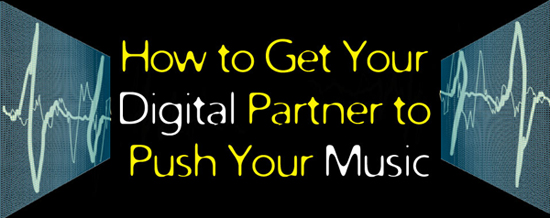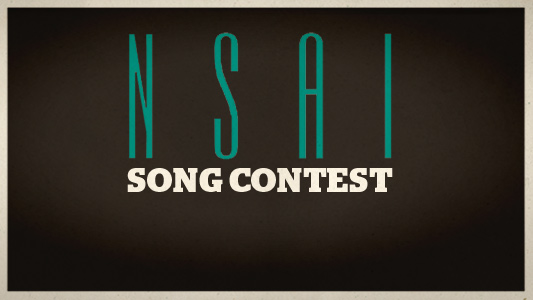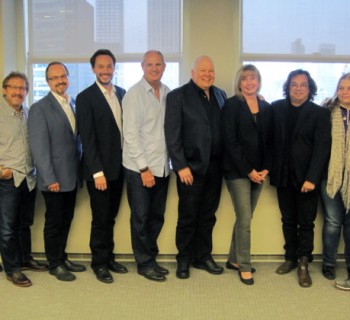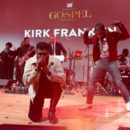By Heather Badower
Every indie band, artist and label needs a network of support when releasing a new album. In today’s crowded music marketplace, getting noticed by fans is one thing, but there’s also the challenge of getting noticed by your label, digital distributor and the digital music stores. So how do you stay on their radar and make them an advocate of your music? Heather Badower knows how. An exec at BFM Digital, a digital distribution, marketing and PR music company, her insightful tips can help you maximize your relationships, further your career and GET NOTICED!
1. Be Professional
Whether it’s your label or digital distribution partner, remember that whomever you’re working with is on a tight schedule and is probably working with dozens (if not hundreds) of new releases. When you reach out, always ask if it’s a good time to talk and outline the points you want to address. The same goes for email––be concise and use a specific subject. Proper email etiquette and consideration for others’ time goes a long way!
2. Know the Industry
Music Connection readers know this, but it’s always worth mentioning again: If you’re in the music business (and that goes for artists too), you need to educate yourself on the industry. Know the basics––how labels, managers and agents work, what a sync placement is, the ins and outs of publishing, etc. You don’t have to be an expert on everything (like mechanical licenses or copyright law) but you should at least have a good understanding. This knowledge will make your job easier and will protect you as an artist when negotiating deals.
You should also read your music trades weekly, if not daily. (Such as Music Connection magazine!) The music business has changed dramatically over the last two decades and continues to evolve at an astounding rate. Stay on top of changes, new technologies, new deals and the major players in the industry.
Knowing the industry will help you navigate your way and will show your label/distribution partner that you’re serious.
3. Do Your Homework
Your label/distribution partner should send you guidelines and templates to help you submit your music quickly and accurately. Read through everything to make sure that when you send in your cover, audio files, metadata, etc. that it’s to spec and fulfills all the requirements they’ve outlined. No one likes chasing down files here or there, or to receive an album cover that’s 100 x 100 jpg when they’ve asked for 1400 x 1400 (this is the size required for a digital cover on iTunes). Do they want a link or are you supposed to upload everything to an FTP? Find out! When you do your homework, it helps them and it helps you.
4. Create a Release and Marketing/Promo Schedule
When releasing a new album, you should choose an official release date and build a marketing/promotions schedule around it (even when doing a digital-only release). This is especially true when working with your distributor. Often they work one-on-one with iTunes, Amazon, et al. to promote upcoming releases, and these services require a minimum of a month notice prior to the release date to consider the album/single for promotions. Let them know the date you’re releasing the album and deliver all assets to them in time to maximize this opportunity.
Also, the more information sent to your label/distributor the better. Create a one-sheet, press package and professional band biography for your release. If you’ve lined up a CD release, booked a string of tour dates, are promoting to local radio or have review coming out in a magazine, let them know.
5. Have a Great Website
Your website is the most important part of your online presence. Facebook, Twitter, Myspace, etc. are great tools for expanding your network and engaging with fans, but social networks come and go (and along with them all the fans you’ve gathered). Social networks, then, should be used to drive traffic to your website. For example, post a teaser video or song clip on Facebook that drives fans back to the website where they can sign up for your mailing list to receive the full track.
Main content included on your website can include merchandise or bundles that fans can’t get anywhere else, a mailing list sign-up, tour dates and more. Most importantly, you own all the content on your website and have control over how you use it.
There are plenty of websites out there today that are cheap or even free that offer great templates for a band website (check out bandzoogle.com). Most don’t require coding and can be set up in just a few hours.
6. Engage Your Fans
Anyone in the music business today will tell you that fan engagement is one of the most important pieces of the puzzle. Your fans are essential advocates, and mingling at shows, interacting online and developing relationships with them is one of the most important things you can do to grow your career. It’s also something that your label, distributor, or promoter can’t do for you. Fans want to hear from the artist, not someone marketing the release.
7. Keep Creating New Music
It may be cliché, but content is king in music. Once you’ve released a new single, album or EP, keep the new music coming. It doesn’t always have to be new material––live and acoustic recordings, remixes, etc. work just as well. What’s important is that your fans always have something to look forward to and that your label/distributor has new content to keep promoting.
Above all, never forget that the biggest advocate for your music should be yourself.
miniBIO: Heather Badower is Director of Marketing at BFM Digital where she works with BFM’s 500+ partners to create marketing strategies for new releases, promote their content to the digital music services (such as iTunes, Amazon, etc.) and create partnerships with new technology companies to benefit BFM’s clients.














